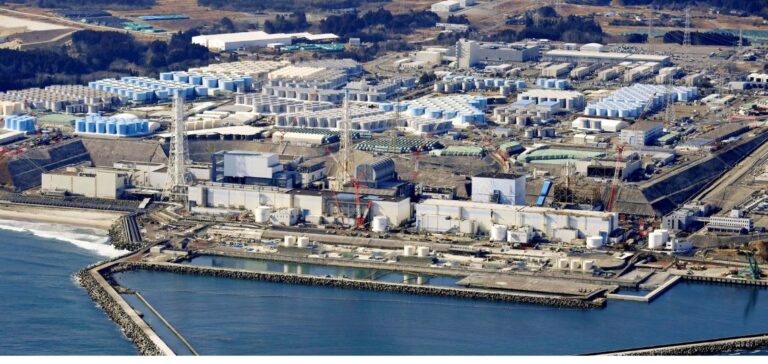The radioactive water leak at the Fukushima Daiichi nuclear power plant last February raised questions about safety and risk management in the Japanese nuclear industry. Despite the IAEA’s initial reassurances about the seriousness and scale of the incident, concerns persist about the potential consequences for the environment and public health. Japan was already at the center of controversy in 2022, when it began discharging contaminated water into the sea.
IAEA evaluation
IAEA chief Rafael Grossi described the incident as “minor”, citing both the small quantity of water involved and its limited impact. However, this statement is far from silencing the controversy, and reminds us that the IAEA was itself the subject of criticism in 2022. Criirad criticizes the IAEA in a review of radioactivity at Chernobyl.
However, the recent incident at Fukushima highlighted the site’s persistent vulnerabilities, which are still being dismantled following the 2011 nuclear disaster. Despite progress in radioactive waste management and the containment of contaminated areas, the plant remains prone to unforeseen incidents, fuelling concerns in the international community, notably in China and Russia, which have suspended their imports of Japanese seafood products. The two countries are thus expressing their concerns about the transparency and reliability of the information provided by the Japanese authorities.
International implications and reactions
Moreover, incidents prior to Fukushima have already raised doubts about
International concerns point to the persistent challenges facing the Japanese authorities, particularly in the management of contaminated water. Despite progress in radioactive water treatment, notably the reduction of tritium levels, questions remain about the long-term impact on the marine environment and public health. Ultimately, it is the reliability of the measures taken by Tepco, the plant operator, to ensure safety and minimize environmental and health risks that is being called into question.
Future prospects
As the process of dismantling Fukushima Daiichi continues, it is imperative for the Japanese authorities to learn the lessons of this incident and reinforce safety and transparency standards in the nuclear industry. Public trust and international cooperation are essential to ensure optimum management of nuclear facilities, and to alleviate fears and uncertainties about the risks associated with nuclear energy.
The recent incident at the Fukushima Daiichi nuclear power plant raises important questions about safety and risk management in the Japanese nuclear industry. As the authorities seek to reassure the public about the scale of the incident, it is imperative to reinforce safety and transparency standards in the nuclear industry to ensure the safety of people and the environment.






















